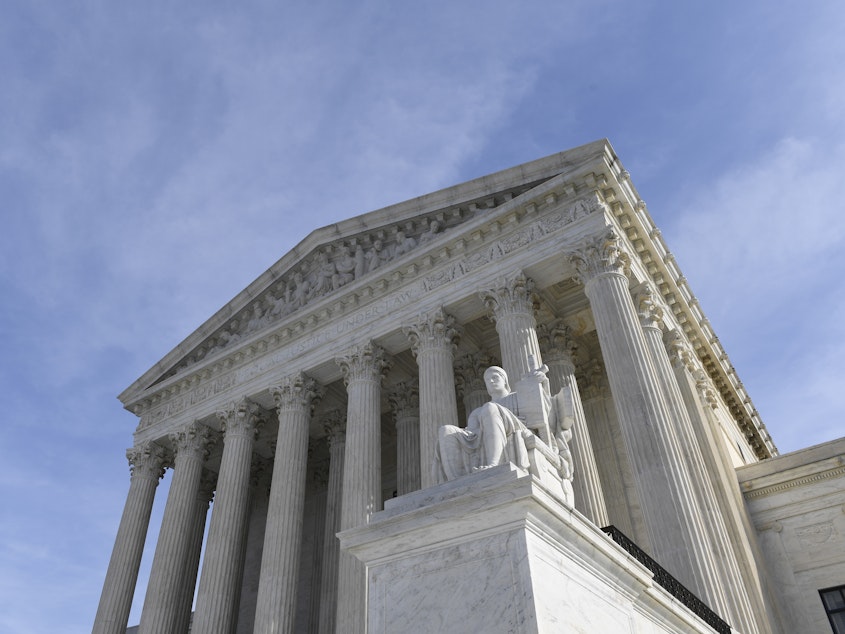Justices Fear 'Chaos' If Electoral College Delegates Have Free Rein

The Supreme Court heard arguments Wednesday in cases that challenge attempts by states to penalize Electoral College delegates who fail to vote for the presidential candidate they were pledged to support.
Under state laws, Electoral College delegates are pledged to cast their ballots for the candidate who carries the popular vote in their state. But in 2016, seven delegates cast votes for candidates they were not pledged to support.
The arguments involve challenges to laws in Washington and Colorado, which are among the states that have tried to prevent such "faithless elector" votes by enacting laws to remove them or fine them, or both.
In the Washington case, the justices pushed Lawrence Lessig, the lawyer for the electors, on his position that the electors were simply doing what the Founding Fathers envisioned: exercising their independent judgment and their consciences.
"Washington does not like the Constitution's design," he said. "It asks this court to read the word 'elector' as 'agent' or maybe 'minion.' "
Sponsored
But Justice Ruth Bader Ginsburg countered: "It's somewhat hard to understand the concept of a pledge I'm bound to but that promise is unenforceable."
Justice Samuel Alito said a ruling for the electors would mean chaos, a remark that Justice Brett Kavanaugh echoed: "Just being realistic, judges are going to worry about chaos."
Representing Washington state, Solicitor General Noah Purcell said that if states were unable to punish or remove faithless electors, "it would radically change how American presidential elections have always worked in our country."
However the high court rules, the cases are likely to focus national attention on the shortcomings and uncertainties of the Electoral College in an era when two presidential candidates have lost the popular vote but won the presidential election because of the Electoral College.
The case is the second in two days that could have consequences for the 2020 presidential election. On Tuesday, the justices heard arguments in a pair of cases involving President Trump's financial records.
Sponsored
Arguments were audio-livestreamed Wednesday and the justices participated by telephone conference because of social-distancing measures adopted amid the coronavirus outbreak. Here's is a rundown of the cases heard by phone. [Copyright 2020 NPR]



